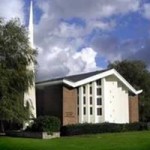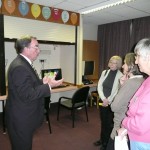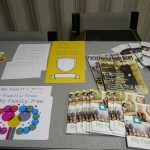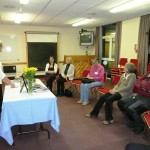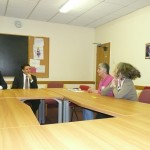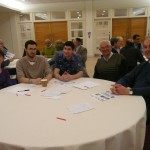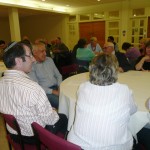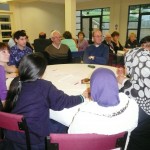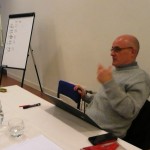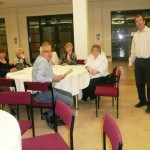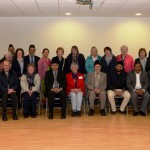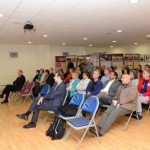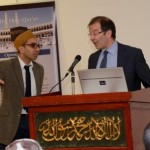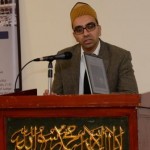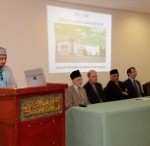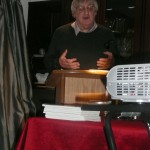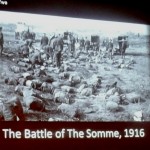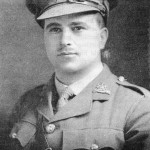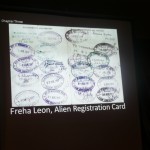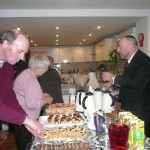On Thursday November 13th a group of about 24 members of AIG went to visit the Church of Jesus Christ of Latter-day Saints in Sharston, founded in 1964, and were treated to a most interesting and informative evening. We were all welcomed most warmly by senior members of the Church and escorted into the main Chapel which was large, light and airy, where we were greeted by Daniel Liptrott, the Stake President. After an opening prayer, he told us briefly about the Church and then we were split into small groups and shown around some of the main features of the building. First, my group were told about the Relief Society, where the women of the congregation were engaged in relief of the poor and destitute and looked after the spiritual welfare of all the women in the church. The role of the family was emphasised and the importance of supporting those in need, with Sunday gospel instruction and teaching manuals to study. We were told about visiting teaching, where women go in pairs to visit others and to assess their needs and help where possible.
Then we moved to the Family Room where all the geneology is carried out, on microfiche and computer, and this is available to everyone who is curious about their ancestors. The importance of family was very strongly stressed, as there is a belief in an afterlife where we are reunited with past family members. We were then shown the large cultural hall, which has the facilities for dances, plays and sports and can also be opened out to join up with the Chapel when necessary, to give a very large space for worship. Lastly we sat down in the High Council Room which had portraits Church officials on the wall, and the hierarchy of the church was explained to us. Finally, we all returned to the Chapel to see a video about the Church and the seven core beliefs were explained to us, followed by a closing prayer, after which we were treated to an array of delicious cakes and soft drinks and given a chance to mingle and ask questions.
We were very touched by the warm hospitality of the members of the church, who invited us to take away copies of the Book of Mormon plus several leaflets including one about the prophet Joseph Smith, who founded the Church, and booklets for children about making a family tree. It was altogether a most enjoyable and fascinating evening and people had obviously gone to a lot of trouble to plan the event. We are most grateful to all the members of the Church and particularly to Cedric Knipe, the Church Patriarch, who enabled the visit to take place. Hopefully, ties have been established which will continue to develop and bring our various communities closer together in mutual understanding.
Carolyn Jones
(Hon. Sec., Altrincham Interfaith Group)
